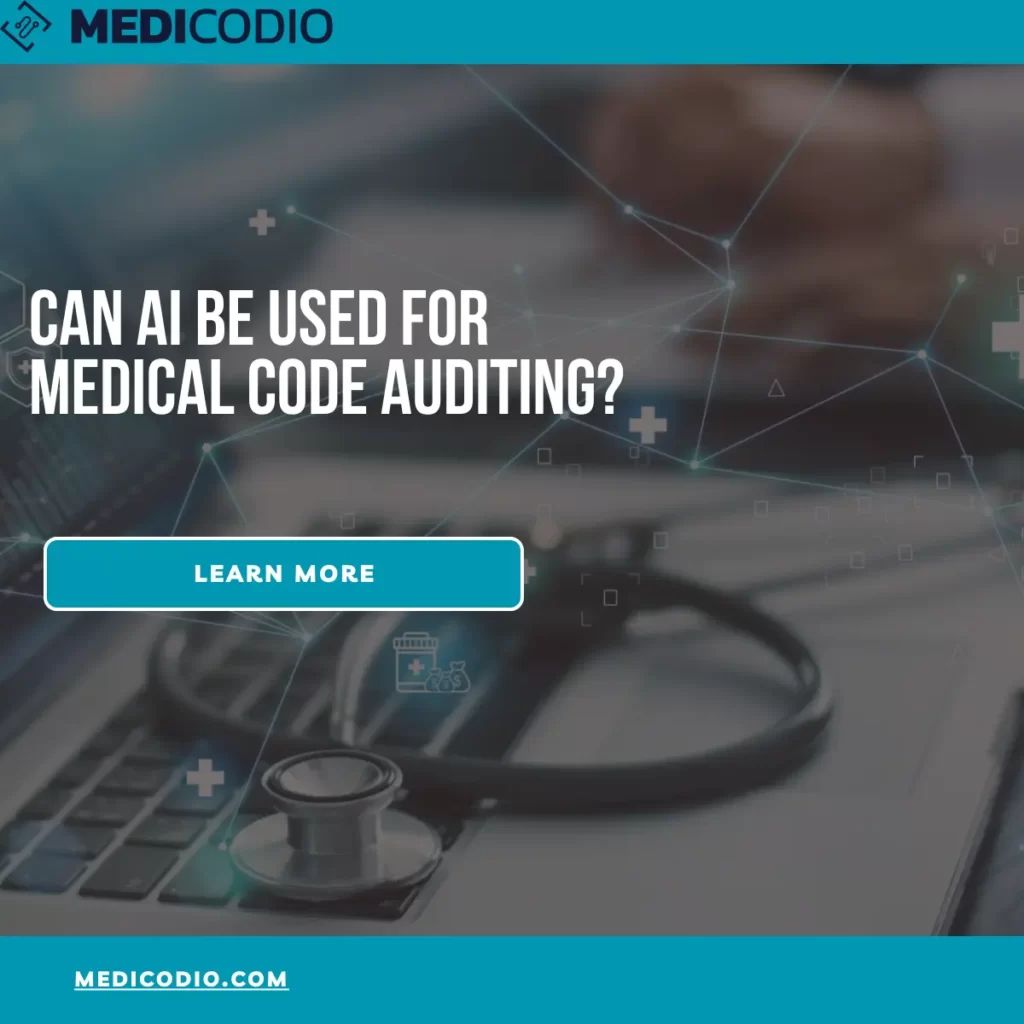Medical code auditing is a crucial process in the healthcare sector. With the rise of advanced technologies, medical code auditing is reaching new heights. Artificial Intelligence (AI) has demonstrated its value across various healthcare business operations, and medical code auditing is certainly no exception.
AI is going to become the most reliable resource for Medical Code Auditors. AI can be used for medical code auditing, and it has the potential to improve the efficiency and accuracy of the process.
In this blog, we explore the possibilities of using AI for medical code auditing.
What is medical code auditing?
Medical code auditing is a critical aspect of healthcare billing and coding performed to ensure compliance with regulations, accuracy in billing, and proper reimbursement for medical services provided. Auditors inspect to see if healthcare organizations adhere to appropriate standards, guidelines, and best practices to produce accurate medical coding. The audit involves checking for inaccuracy issues, such as outdated codes or even fraudulent billing.
Here are some ways AI can be utilized for medical code auditing:
When it comes to medical code auditing, AI offers a myriad of possibilities for transformative applications. Below are some ways AI can be utilized for this crucial task:
Automated Code Validation: AI algorithms can be trained on vast amounts of historical data to identify patterns and anomalies in medical codes. By analyzing electronic health records (EHRs), claims data, and coding guidelines, AI can automatically verify whether the assigned codes match the documented procedures and diagnoses.
Error Detection: AI can detect coding errors, inconsistencies, and potential fraud in medical claims. It can flag claims that are likely to be incorrect or require further review, helping auditors focus their efforts on high-risk cases.
Real-time Feedback for Coders: AI-powered auditing tools can provide real-time feedback to medical coders as they enter codes into the system. This can help coders correct mistakes and ensure accurate coding from the outset, reducing the need for retrospective audits.
Identifying Patterns and Trends: AI can analyze large datasets to identify patterns and trends in coding behavior. This can help healthcare organizations proactively address potential compliance issues or identify areas where additional coder training might be needed.
Improving Compliance: By continuously learning from audit results and regulatory updates, AI systems can adapt and improve their auditing capabilities to align with the latest coding guidelines and compliance requirements.
Reducing Manual Workload: AI can significantly reduce the burden of manual auditing by automating repetitive tasks, enabling auditors to focus on more complex cases and strategic decision-making.
AI tools, like MEDICODIO, have the potential to revolutionize healthcare back-office operations like never before. Click here to learn more about how to avoid common medical coding errors.
However, it’s important to note that while AI can enhance medical code auditing, it is not a complete substitute for human expertise. Human auditors are still essential to interpret complex cases, deal with context-specific issues, and exercise judgment when needed. Combining AI capabilities with human oversight can lead to more accurate and efficient medical code auditing processes in the healthcare industry.





